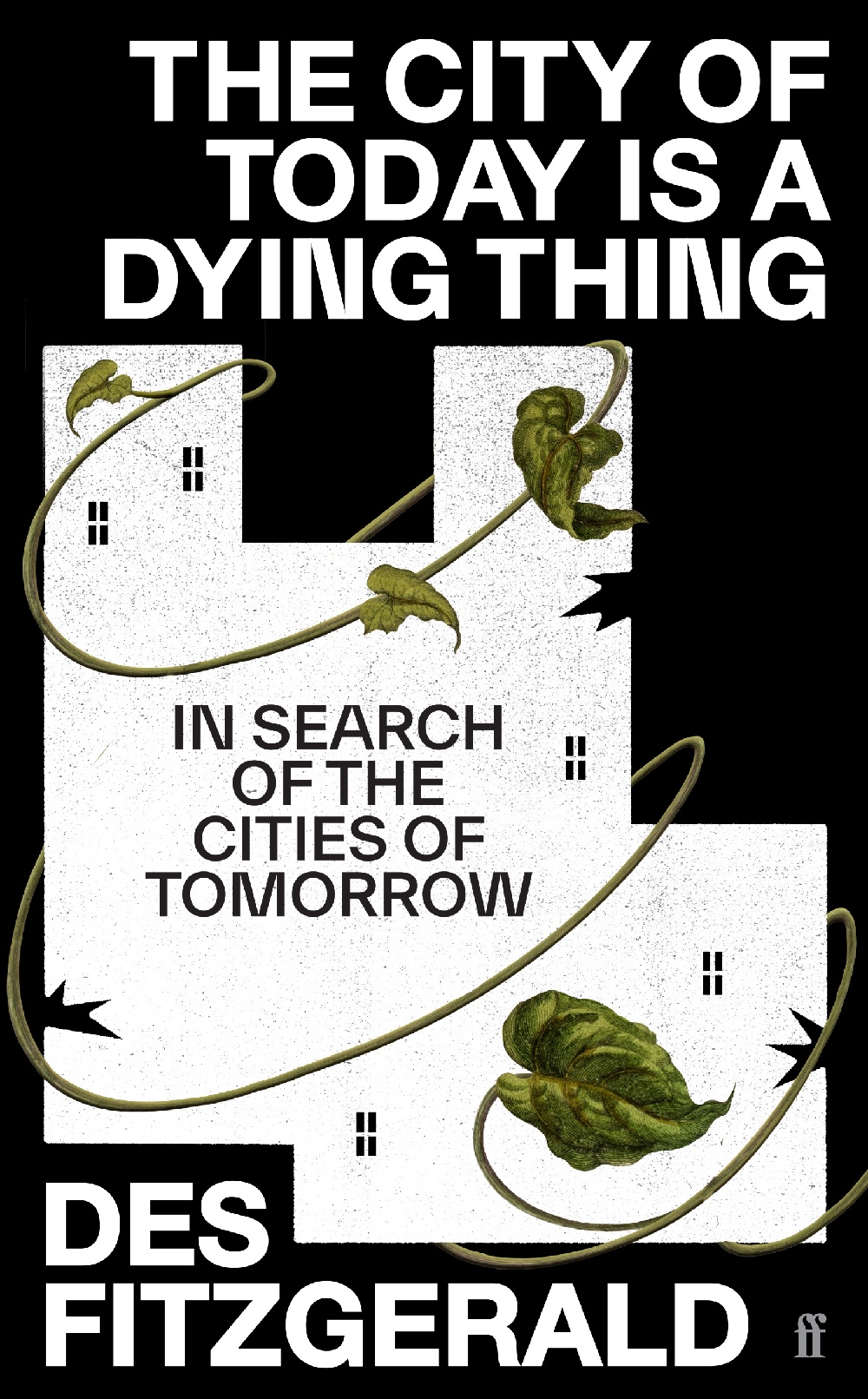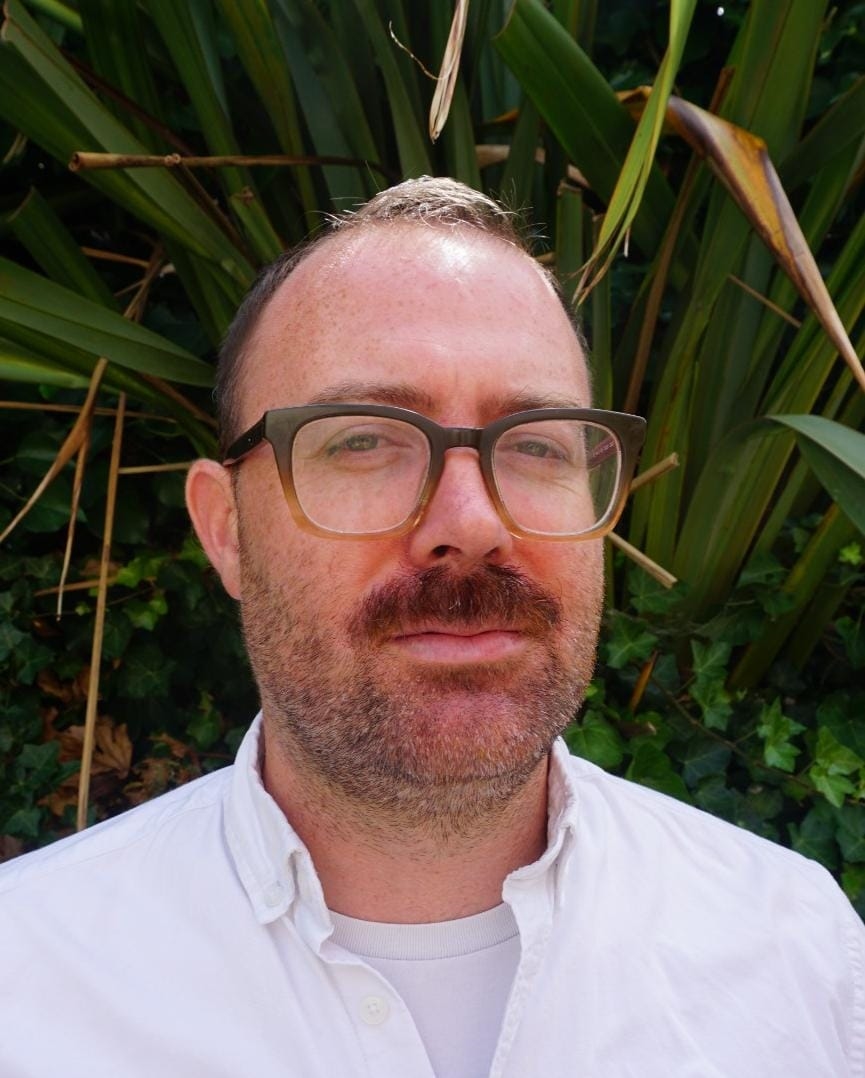Back to the F**kture: Des Fitzgerald
Welcome to Season 3 of Back to the F**kture! We've lined up plenty of exciting guests, starting with Medical Humanities and Social Sciences Professor Des Fitzgerald. He joins The Future Laboratory co-founder Martin Raymond to discuss cities of the future.
We’ve covered a lot about green cities and the rise of blue zone city districts on LS:N Global, but what if we have been too simplistic, judgemental and morally narrow in our approach and understanding that green is good and the concrete grey of the city is inevitably bad for our physical, spiritual and moral wellbeing? Professor Des Fitzgerald reminds me in our latest Back to the F**kture podcast that this could very possibly be the case.
The city of today is a dying thing, helped, if you believe professor Des Fitzgerald, by our current obsession with greening everything – rooftops, backlots, vertical walls, even artificial humps in Hyde Park – to give us a brief hint of bucolic brilliance in an otherwise arid and concrete city.
Fitzgerald, who is professor of medical humanities and social sciences at University College Cork, rightly takes exception to the fact that cities – for that, read concrete, dirt, pollution and overcrowding – are supposedly killing us mentally, spiritually and physically, while nature (for health, happiness and spiritual wellbeing) is our saviour, sanity-provider and erstwhile conduit to all things bright and beautiful.
Like him, as we discuss in my latest Back to the F**kture podcast, I’ve never quite believed in this bullshit. As a child – gay, dyslexic, Irish, vegetarian – I flew from the narrow-minded conservatism of the latter to embrace the open, inclusive, diverse and liberating serendipity of the former. And happily, healthily, I continue to do so today, believing as Fitzgerald does, that misunderstood assumptions about mental wellbeing are demonising the city at a time when we need to positively re-evaluate its value and worth.
Such divisions, as Fitzgerald tells me, are far from clear-cut, and by vilifying one we are doing the other – nature – a gross injustice. But worse, we are playing into convenient tropes, prejudices, and increasingly, ideological planning conventions that are allowing us to mask the real issues and beauty of what cities are, and what they can become if we stop seeing them as ‘poisonous’ and nature as their ‘cure’.
24 May 2024
Author: Martin Raymond
Image:
Share
𝕏
Related articles:
Back to the F**kture: Susanne Etti
Back to the F**kture: Carlota Rodben
Back to the F**kture: Tasha Golden
 The City of Today is a Dying Thing, Des Fitzgerald
The City of Today is a Dying Thing, Des Fitzgerald
We are, he believes, engaging in a kind of eugenic pastoralism, whereby greenification –which can be traced back to the great 19th- and 20th-century model village and garden city movements – has deliberately set us in opposition to how we should interpret cities and design them by convincing us that tamed nature, or the stylised or planned nature we find in places such as the Lever Brothers’ Port Sunlight, Ebenezer Howard’s Welwyn Garden City or King Charles’s Poundbury, is better for our spiritual as well as our moral health and character. Port Sunlight, home of the soap bar of the same name that scrubbed the empire’s great unwashed (as well as propping it up) is a good clean metaphor, so to speak, for how these tropes and moralising equations were forged and inserted into the subconscious.
And here lies the real evil of the matter: how, over time, ideologues, reformers, zealous architects and hygiene-obsessed town planners have ingrained in us the idea that, morally, nature and its associations make us better. The history of model villages and garden cities, as Fitzgerald amusingly outlines in his book, are steeped in eugenics, social hygiene and the discouragement of dissent, while cities, with their concrete, brutalism, overcrowding and fractious nature, encourage anarchy, disorder, corpulent and cultural decay.
Thus, any dialogue about the city and its positive, symbiotic relationship with the countryside is buried in yet another kind of culture war, where those who question the ‘nature’ of the countryside are derided, and those who remind us that cities have, over time, proved to be able sanctuaries for radical ideas, equitable opportunities and diverse cultural practices, are vilified as haters of nature.
As Fitzgerald acerbically points out, however, cities are natural; they are urban jungles, if you will, made from the very same materials we find lying in the countryside and our mountains, and they are, of course, constructed for people by people to accommodate people in a multicultural sense. The countryside, however – give or take a few enclaves – remains pretty monocultural, which, in itself, for many of us who fled the soul-numbing grimness of village life, makes it wholly ‘unnatural’.
But, as you will hear in our podcast, Fitzgerald does not choose a black or white positioning, unlike like myself – cities for ever! – but applies a witty, meditative, wholly intelligent approach that asks us to consider why we have allowed such tropes to sink into our consciousness (city bad/nature good). And especially at a time when, now more than ever, we need a better blueprint for the cities of tomorrow, not just cities with roof gardens or sky parks available for the privileged few, but cities that function wholly, healthily and harmoniously for the non-privileged many.
This may be about trees, but, as he clearly points out, it must also be about people, about spirituality, health, wellbeing and intellectual satisfaction on our terms, rather than requiring us to take a stance for or against trees, which we are increasingly, and dangerously, asking people to do.
The City of Today is a Dying Thing by Des Fitzgerald is published by Faber & Faber, and can be bought in all good bookshops, or online from Amazon.
You can hear the full interview with professor Des Fitzgerald by listening to my latest Back to the F**kture podcast here., you can also follow him on X: @des_fitzgerald

